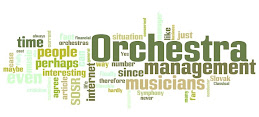Yesterday I arrived home too late to pay attention to the news. Just another day. As I opened my news-bookmarks this morning, I noticed an entry of a speech of the Slovak President in parliament. Oh yes, I vaguely remembered it was mentioned on the news. Just taking a glance, and just before clicking away, suddenly my eye fell on the sentence with the word "culture"! I began reading and fortunately there was a link to the integral text of his speech. Especially this section caught my attention:
Knowing - although I greatly regret having to say this - that the speech will land on deaf ears, the short-lived excitement of having read such frank truth on culture from a politician's mouth has slowly faded already. For such issues one needs a true statesman. One still hopes though.
MS
source: SME Newspaper
translation by the author
"Our culture is the fundamental character of our Slovak identity. Its uniqueness is being strengthened, even through its openess, its moving towards and exchange of other cultural values. Our culture is our principal message to Europe and to the world. Today it lacks a bigger courage in its view on us and the surrounding world. We need timeless visions, refusal of trash and quick commercial fame. This is especially the case in creative arts, which has started to copy cheap foreign successes. Bussiness is nowadays cruelly trampling on the qualities of culture. We need to change this and support every attempt into this direction. ... "One could not agree more. While the message of this excerpt is touching, and true, the context of the President's speech including the reactions of various parliament members gives it a grim after-taste. Cultural life suffers quite much - not only to mention the sheer implementation of funding culture (and I am not talking of the effects of a financial crisis here) but also the visible abuse of some of those involved, where the artistic quality seems irrelevant but what counts is one's political allegiance. In the event, he would have really cared, he could have intervened. He has the tools to do so. He never did.
Knowing - although I greatly regret having to say this - that the speech will land on deaf ears, the short-lived excitement of having read such frank truth on culture from a politician's mouth has slowly faded already. For such issues one needs a true statesman. One still hopes though.
MS
source: SME Newspaper
translation by the author
